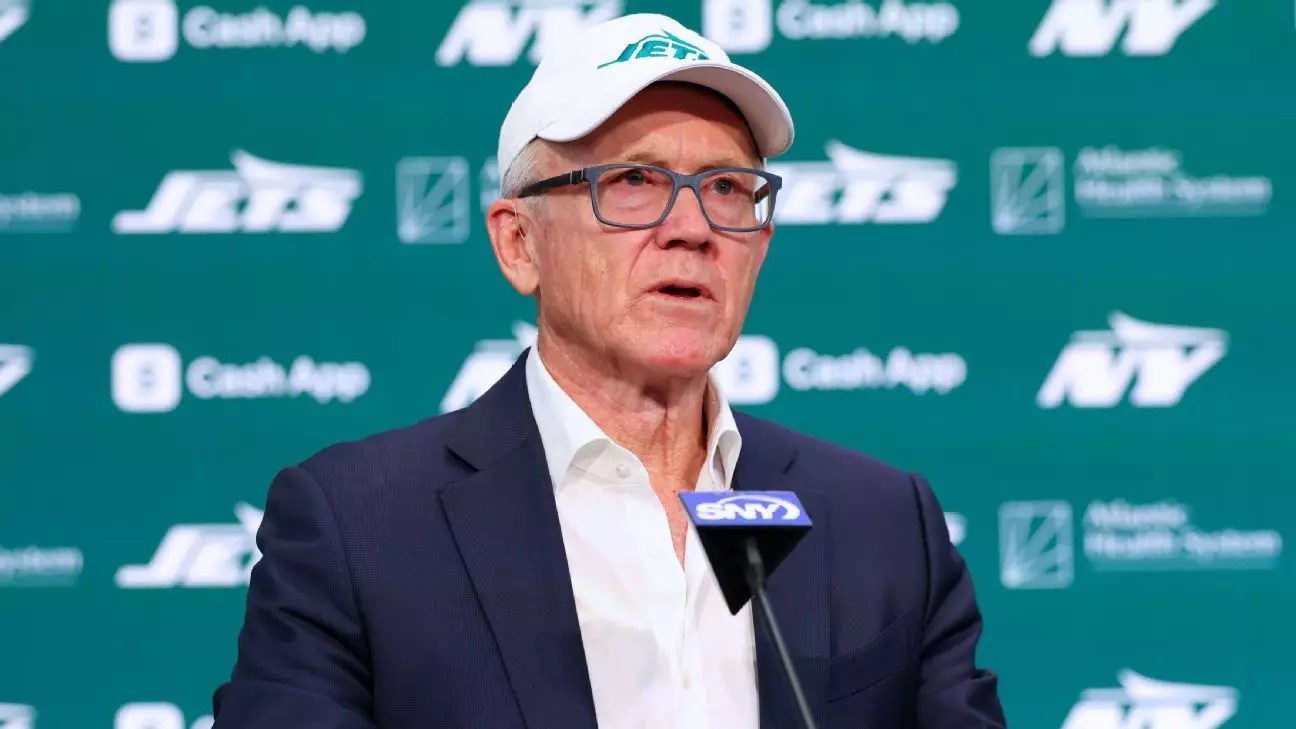In a move that signifies both confidence and ambition, American billionaire Woody Johnson has acquired a substantial stake in Crystal Palace Football Club. The $254 million investment, which secures a 43% ownership share, is not merely a financial transaction but a signal of meaningful change ahead. Johnson’s entry into the club’s ownership structure introduces a new dynamic: a seasoned business leader with significant experience in US-UK relations and a personal passion for football. This development is poised to elevate Palace’s profile on both domestic and European stages, signaling an era of renewed ambition and strategic growth.
Johnson’s reputation as a prominent figure in American business and diplomacy provides him with a unique perspective. Having served as the U.S. ambassador to the UK, his respect for English football and long-standing admiration of the sport’s culture and community connect him deeply with Palace’s roots in South London. This isn’t a superficial investment; it’s a strategic move driven by genuine passion and an understanding of the club’s heritage. His involvement promises to bring a fresh outlook, possibly catalyzing new avenues for revenue, infrastructure development, and competitive performance.
The significance of Johnson’s involvement extends beyond mere financial backing. As a partner alongside existing owners like Steve Parish, Josh Harris, and David Blitzer, his influence is likely to shape the club’s long-term vision. By signing the Premier League’s Owners’ Charter, Johnson demonstrates a commitment to the highest standards of governance and ethical ownership, which has often been scrutinized in modern football’s complex landscape. This commitment could serve as a model for other clubs navigating the challenging terrain of financial fair play, multi-club ownership, and European competition regulations.
European Disputes and the Road to Redemption
Current challenges loom large over Palace’s future, chief among them UEFA’s controversial decision to demote the club from the Europa League to the Conference League. The demotion, stemming from UEFA’s rules on multi-club ownership, has ignited a fierce legal battle that exemplifies the tumultuous nature of European football governance today. Palace, claiming innocence, has contested UEFA’s ruling through an appeal to the Court of Arbitration for Sport (CAS). Their argument centers on the assertion that John Textor’s influence was not decisive, a claim they believe will prevail in court.
This dispute highlights a broader issue in international football: the blurred lines between ownership influence and regulatory oversight. While UEFA’s stance aims to prevent unfair advantages and conflict of interest, critics argue that its rules are overly restrictive or inconsistently enforced. Palace’s resilience in challenging this decision underscores the club’s desire to compete at the highest levels and maintain their integrity. Johnson’s backing provides additional resources and confidence to persist through this legal saga, which is likely to define the club’s trajectory for the upcoming season.
Johnson’s global stature, combined with Palace’s local roots and passionate fanbase, creates an interesting dichotomy. His failed bid for Chelsea—when the club was under sanctions—demonstrated his willingness to pursue ambitious projects, even if initial efforts didn’t come to fruition. Now, with Crystal Palace, he has a fresh opportunity to shape a club that embodies resilience, tradition, and forward-thinking. His presence may also inspire a cultural shift among stakeholders, emphasizing transparency, professionalism, and long-term vision.
The Path Forward: Balancing Tradition and Innovation
For Crystal Palace, these changes represent a crossroads—an opportunity to balance their rich history with bold new strategies. Johnson’s influence might catalyze significant investments in player transfers, infrastructure, and youth development. Moreover, his diplomatic background and international connections could open doors to new sponsorships, global markets, and broadcasting deals that boost the club’s financial stability.
However, the path isn’t without obstacles. The legal dispute with UEFA, the challenge of maintaining squad competitiveness, and the ever-changing landscape of European football require deft navigation. Yet, Johnson’s arrival injects a sense of optimism and resilience. His track record indicates a willingness to confront adversity head-on, whether through his political career or business ventures.
Ultimately, his ownership marks a pivotal moment for Palace—one that could redefine their legacy. With a blend of tradition, strategic ambition, and fresh leadership, the club stands on the cusp of potentially transformative change, eager to reassert their presence in the top echelons of football. Johnson’s role as an owner isn’t just about financial backing; it’s about steering a storied club into a future where history and innovation intersect to create something truly compelling.


Leave a Reply